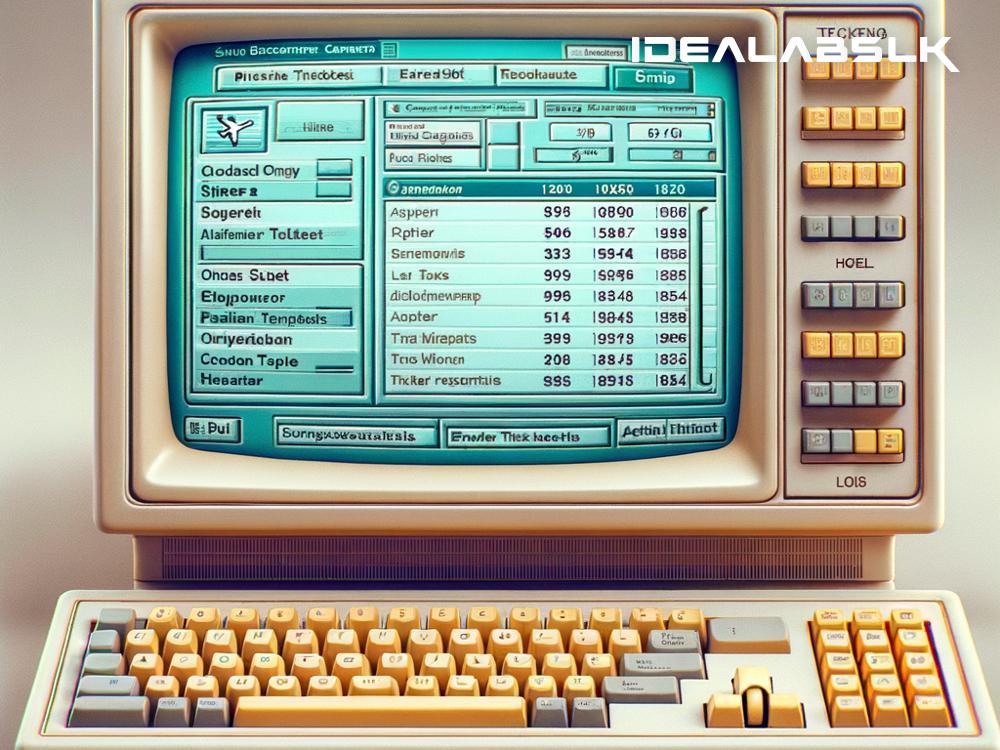The Origins of Online Booking Systems: A Simple Guide
The hustle of standing in long queues, waiting to book a ticket, or make a reservation feels like a distant memory for many of us. Today, with just a few clicks on our smartphones or computers, we can easily book flights, hotels, movie tickets, restaurants, and much more. This convenience is all thanks to the evolution of online booking systems. But have you ever wondered how online booking came into existence? Let's take a fascinating journey back in time to explore the origins of online booking systems.
The Early Days of Booking
In the past, booking anything required a lot of effort. Whether it was flight tickets or hotel rooms, you had to physically go to an office or make a phone call to make a reservation. Travel agencies were incredibly popular, acting as the middlemen between customers and service providers. This process was not only time-consuming but also limited in options and flexibility.
The Seeds of Change: The 1960s & 1970s
The real game-changer in the booking world began in the late 1960s with the introduction of the first computer reservation systems (CRS). American Airlines, in partnership with IBM, developed the Semi-Automated Business Research Environment (SABRE) system. This revolutionary system allowed American Airlines to automate bookings and manage seat inventories efficiently.
Similarly, other airlines started developing their own systems, and soon, the hotel industry followed suit. These early versions of CRS were primarily used by travel agents and service providers and were not accessible to the general public. They were complex, expensive, and required special training to operate.
The Birth of Online Booking: The 1990s
The real turning point for online booking systems came with the advent of the internet in the 1990s. This period marked the beginning of online consumerism, and soon, entrepreneurial minds saw the potential for online booking solutions.
In 1994, a small company called Travelweb developed one of the first online hotel booking systems. This was a revolutionary concept at the time, allowing customers to make reservations directly via the internet without going through an agent or calling the hotel. However, it was the launch of Expedia in 1996 that truly democratized online travel bookings for the average consumer. Expedia, created by Microsoft, allowed users to book flights, hotels, and rental cars all in one place.
The Role of GDS and Boosting Airline Bookings
In parallel to the development of direct online booking platforms, the traditional computer reservation systems evolved into what is known as Global Distribution Systems (GDS). GDS allowed for broader distribution of booking information, integrating airlines, hotels, and car rental companies. This system significantly boosted online airline bookings, making it easier for consumers to compare prices and options.
The 2000s: The Expansion and Diversification of Online Booking
The early 2000s saw a boom in the online booking industry, with platforms like Booking.com (established in 1996 but grew significantly in the 2000s), Airbnb (founded in 2008), and Uber (founded in 2009) transforming how we book travel, accommodation, and even taxis. These platforms introduced user-friendly interfaces, customer reviews, and flexible payment options, further enhancing the online booking experience.
The Impact of Mobile
The widespread adoption of smartphones has further transformed the online booking landscape. Mobile apps allow users to book on the go, with instant confirmations and digital tickets. The convenience and efficiency of mobile booking have led to a surge in last-minute bookings and increased the overall volume of online reservations.
Today and Beyond
Today, online booking systems are an integral part of our lives. They have evolved to offer personalized experiences, utilizing data analytics and artificial intelligence to suggest tailored options to users. The future of online booking looks promising, with innovations like virtual reality previews and blockchain technology for secure, transparent transactions.
Conclusion
The journey of online booking systems from the manual and cumbersome processes of the past to the sleek, efficient, and omnipresent systems of today is truly remarkable. It reflects the broader evolution of technology and consumer behavior, showcasing our relentless pursuit of convenience and efficiency. As we look to the future, it's exciting to imagine the new ways in which these systems will continue to evolve, making our lives even easier and more connected.
The story of online booking systems is a testament to human innovation and adaptability, forever changing how we plan, book, and anticipate our travels and experiences.

